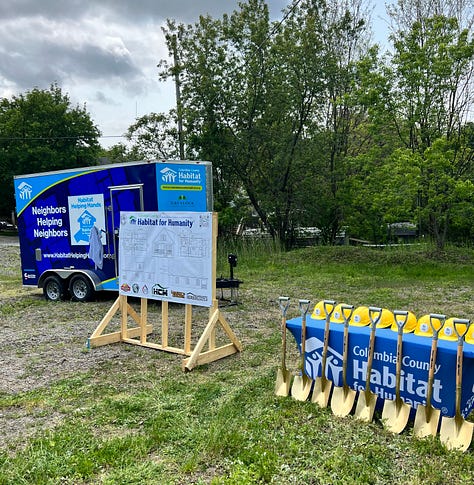
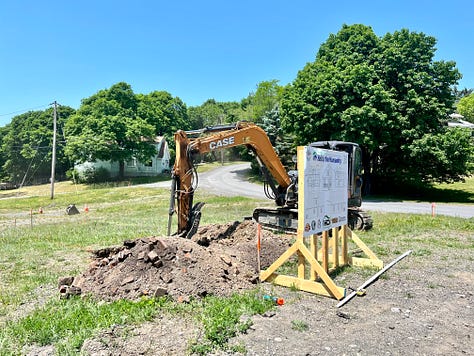
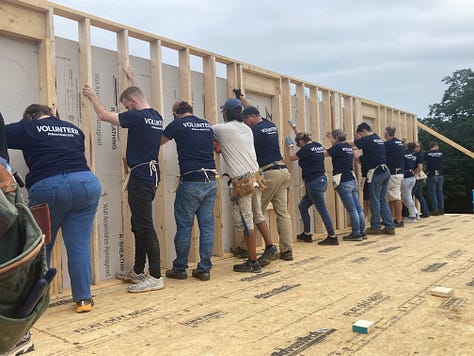
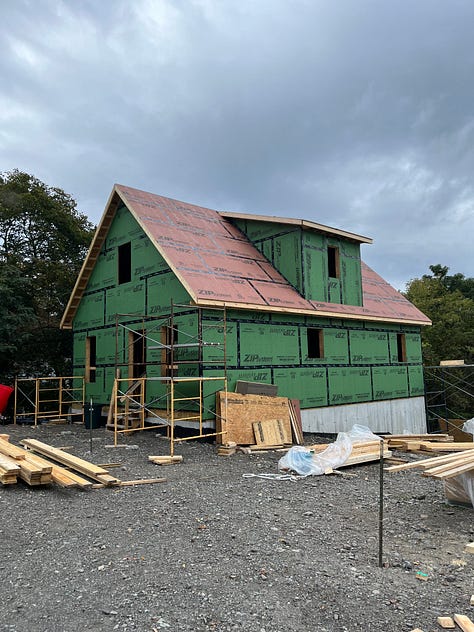

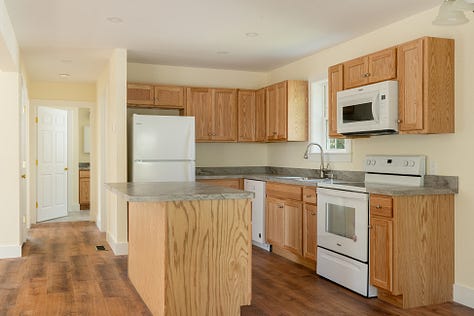

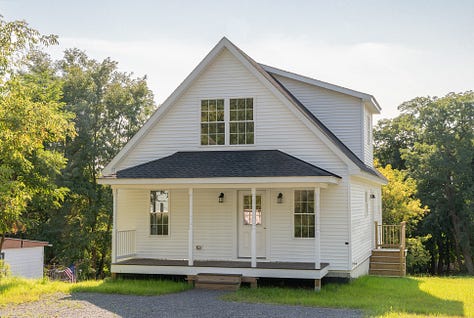
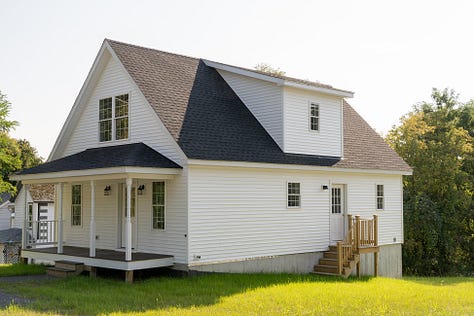
Tomorrow morning, we will be dedicating our completed homes in the village of Philmont, NY. This will complete the 2-year cycle that took us from groundbreaking to formally welcoming two new homeowners and their families to the community.
The closing of the sales took place earlier this year, and this is the first opportunity that the calendar and weather gods have aligned for us to gather together to celebrate.
I wrote about this project here. A few excerpts:
We started planning for this project as far back as 2018, when the parcel of land became available. Then a cascade of stuff happened: COVID, building cost spikes, a change of leadership, staff changes, and an inflow of new residents into our area that spiked rents and housing prices and created an unprecedented housing crisis that we are still in the throes of.
This altered reality necessitated a rethinking of our original building plan. Rather than the duplex townhouse that was initially approved in 2020, we decided to build twin 3 bedroom cape-style houses on adjoining parcels. In the aggregate, it was a simpler and less costly effort, and the homes fit better into the neighborhood.
We broke ground in May 2023, a full three years after we bought the property from the village that owned it. It had been the site of the former municipal garage and was a vacant lot for many years. Local residents had come to use the empty space for many purposes and some were vocally unhappy to lose this “privilege.“
Before we could begin building, we needed to conduct a full environmental assessment of the lot. It passed, and construction in earnest started in July 2023. The homes received their certificates of occupancy in June 2024. Ninety individuals and six organizations contributed more than 500 volunteer hours to the year-long construction, plus we received thousands of dollars in donated or discounted materials, products and services.
These homes are an example of how collaboration works to benefit the many. This project — as with all of our work — combined the efforts of public, private, non-profit and community organizations.
The economic woes of many rural communities emanate from the lack of housing that is affordable to average wage workers. As a result, many of our towns and regions outside of major cities are withering.
Community leaders and many voters are in a state of denial on many issues that are driving loss of population in our communities. It’s really pretty simple: if people can’t find jobs that pay a living wage or housing they can afford, they move. And communities die. Raising taxes to cover loss of revenues exacerbates the problem. It creates a doom loop. With the rise of remote work, lower cost areas should be focused on attracting smart development of affordable housing.
Some believe that government wades into areas better served by other means. While it may be true that it’s hard to find the right balance between social investments and financial stewardship, even when there is agreement on policy goals, that does not support eliminating social programs or the investment in them. It is incontrovertible that investments placed into Habitat housing projects provide a clear return to the individuals and communities involved.
Let’s build. Together, we can be heroes.




Al, this is so true, and you are doing awesome work! Security begins from our homes, and habitat and land trust work is vital. Thank you for sharing some of the behind scenes information for everyone. You're an inspiration!
Such a beautiful success story!